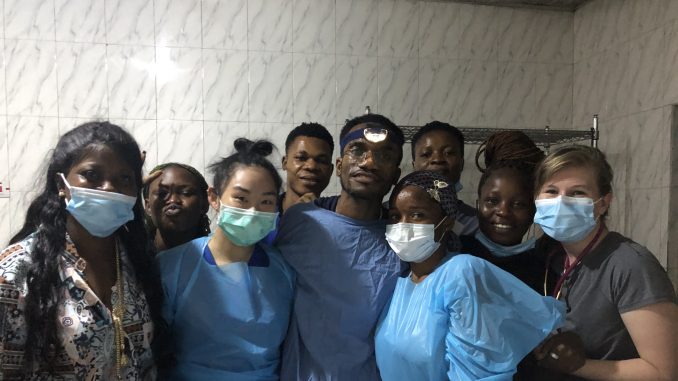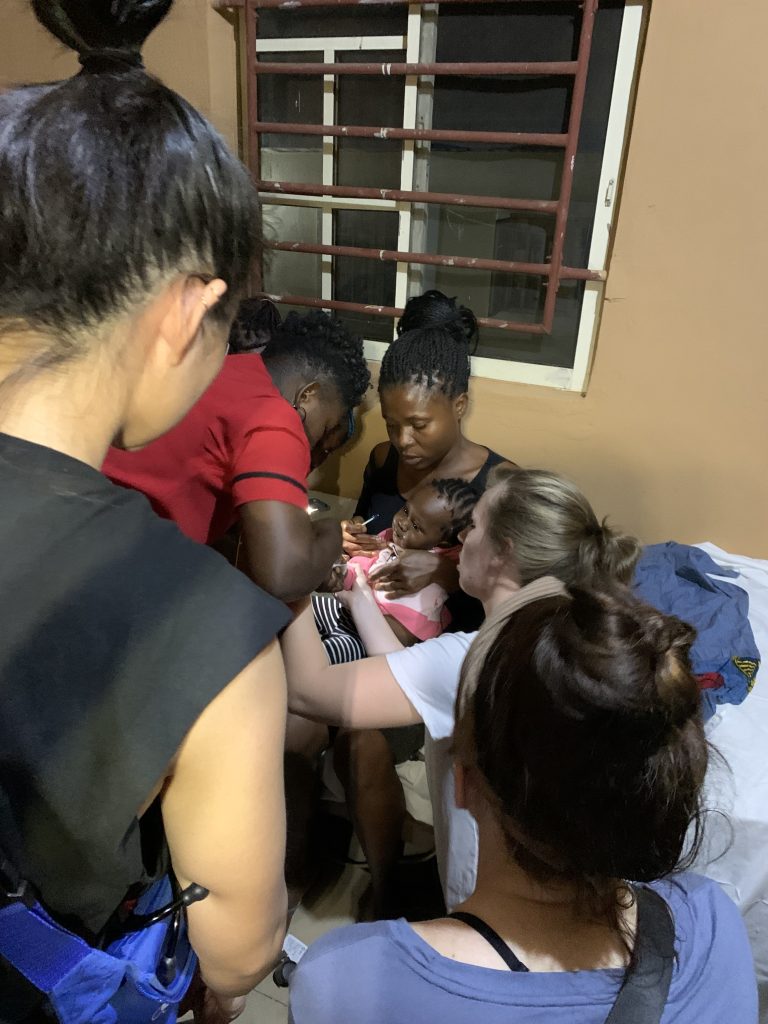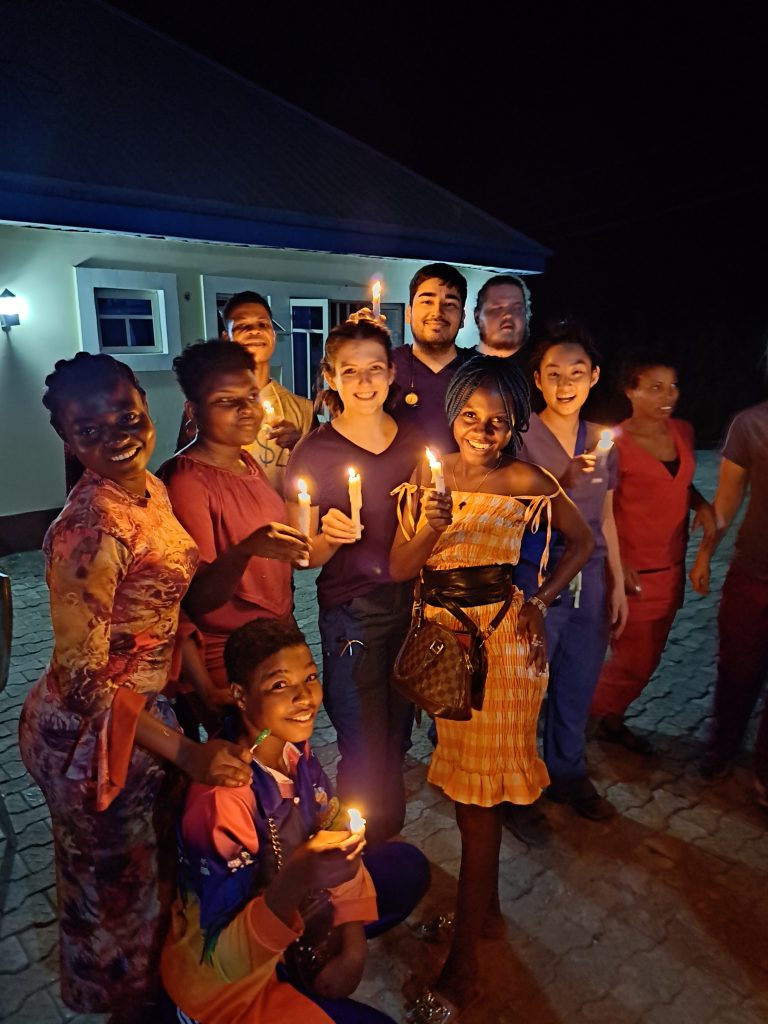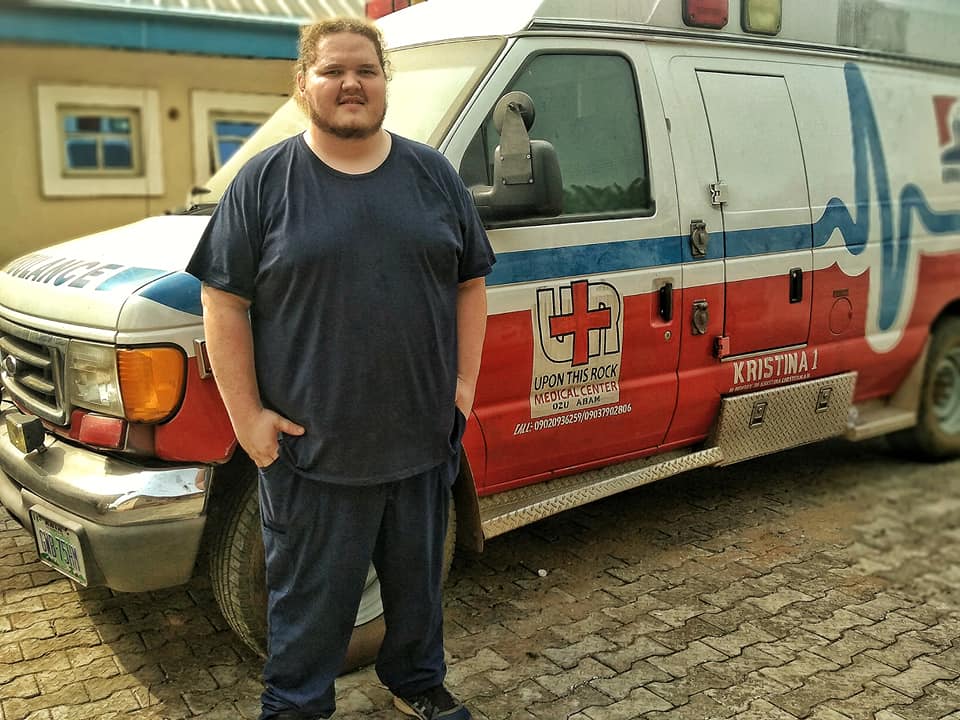
As a Chico State nursing student, Kristina Chesterman dreamed of traveling to developing nations where she could use her skills to help those in desperate need. Sadly, while biking home from a marathon study session in September 2013, she was hit by a drunk driver on Nord Avenue. After two days in the hospital, the 21-year-old succumbed to her injuries.
But Chesterman’s dreams have lived on. In 2017, the Kristina Chesterman Memorial Clinic opened in Ozu Abam, Nigeria. It was built next to a smaller, previously existing clinic called Upon This Rock, that was founded by James Umekwe, a Nigerian living in America who wanted to help bring medical care to his home country. It continues to be funded through charitable efforts organized by Chesterman’s parents, David and Sandra.
Since then, four groups of Chico State nursing students have traveled to the clinic to volunteer their services. It was an annual pilgrimage at first, but the COVID crisis broke that streak. Five current students and Darcy Hostetter-Lewis—an instructor who was one of Chesterman’s teachers, and who designed the volunteer program and has been on every trip—made the first post-pandemic trip recently, from Jan. 4-15.
The students not only volunteer to work long hours at the clinic, but they also pay for most of their plane fare and other travel costs. Some of the cost for each student is subsidized by the ongoing memorial fund, and Umekwe housed those who came to volunteer. The flight, plus the drive from the airport to rural Ozu Abam on poorly built roads, takes between 30 and 40 hours. Rather than packing lots of extra clothes and comfort items, each of the students takes only what they can fit into their carry-on bags, reserving their checked luggage to pack 100 pounds of medical supplies per bag—donated by Chico non-profit group Project S.A.V.E.—for the clinic.
Nigeria is an economically depressed country where the government provides no health care and few social programs, and medical aid—even life-saving emergency care—must be paid for up front. Medical facilities are few and far between, and the doctor-to-patient ratio is abysmal. The Chesterman clinic, however, provides affordable care for the equivalent of about one U.S. dollar as well as free, non-narcotic medications. The services at the clinic range from basic medical care to surgical emergencies.

“Americans can’t really understand what health care in Nigeria and other countries is actually like,” said Hostetter-Lewis. “It’s a great chance for nursing students to get to see that. We may not have the best health care here, but it’s far from the worst, and it gives them a chance to appreciate what we have so that we can keep making it better.”
In a recent interview, three of the students—Katrina Tully, Natalie Chu and Alvaro Banuelos—shared their enlightening, valuable and sometimes harrowing experiences in Nigeria. All three are in their fifth and final semester of the university’s nursing program, and scheduled to graduate in May. Anna Carter and Jonah Hostetter-Lewis (Darcy’s son, who has made three trips to Nigeria with her, though this was his first as a nursing student) were also on the trip, but unavailable for the interview.
Warm welcomes and cold realities
The students said witnessing the poverty and poor living conditions in Nigeria was shocking, but all were impressed with how friendly, welcoming and positive the people were. Chu said they felt like celebrities arriving in Ozu Abam, with everyone waving and even cheering when they first saw the students.
“Everyone was so welcoming,” Banuelos added. “One of first nights we walked through the village, and everyone says, ‘Hi.’ In their culture it’s kind of rude not to greet everyone. And everyone who came to the clinic who was treated was so grateful and really made that known.”
“Some of my best memories were the people,” Chu said. “Even though they’re living in so-far-from-ideal situations, they still find ways to put smiles on their faces.”

On just their second day in Nigeria, while still reeling from jet lag and the long journey, the students were preparing for their work day when they received a call saying that there was an urgent trauma situation, and to hurry in to the clinic. They arrived to find a young girl who’d sustained a serious head injury in a car accident.
“Her head was split open from front to back,” Tully said. “By the time we arrived the other nurses there had already medicated her and were in the process of closing her up. We tried to stop them, and to tell them that they needed to take her to a bigger medical center, because there’s a lot that needs to be done before that. Then there was a language barrier that made the communication a lot more difficult.
“In the U.S., if someone goes to the hospital, and especially if there’s trauma, you get everything off the bat … tests, imaging, bloodwork. But the parents said this was all they could afford and that is all we could do.”
Hostetter-Lewis noted that one patient died while the students were there because he couldn’t afford to travel to or pay for care from a larger medical center, and the clinic simply didn’t have the oxygen he needed to keep him alive.
Chu said that, with limited resources available, the students were regularly forced to “think outside of the box” in order to meet patients needs. As an example, she said the child from the accident needed to keep her head elevated, but the hospital bed was broken. So she thought to fold up an extra mattress and insert it beneath half of the mattress on the bed to raise it.

The student nurses rotated stations at the clinic—doing triage, helping patients in the waiting room, dispensing medications in the pharmacy and assisting doctors in surgeries. They said the most common ailments were waist and back pain, heartburn, undiagnosed hypertension and blood sugar issues, and a lot of hernia repairs. Banuelos said many patients also had cataracts and other vision issues, and that at times he felt powerless because there wasn’t much they could do to help them.
Despite the hardships, the students said the trip was a fantastic experience, and expressed appreciation for their exposure to Nigerian culture beyond just health care, and forging real friendships with many locals. They all nodded emphatically when asked if it’s something they would recommend to other students.
“[Nursing in impoverished countries] wasn’t something I’d thought much about or was super passionate about doing,” Tully said. “But now that I’ve gone, I 100 percent want to return, and I hope to have the opportunity to do something like that again.”
Chu agreed, saying she plans to do more work in developing countries: “It’s so heartwarming and eye-opening to see how we can help.”
“It felt so good to help people that it didn’t even feel like work,” Banuelos said. “We worked eight days straight, but the whole time I felt like I just wanted to keep going and going and help as many people as I possibly could.”

Thanks for sharing this awesome experience!
I’m so happy to have you guys come to my community. I miss y’all ❤